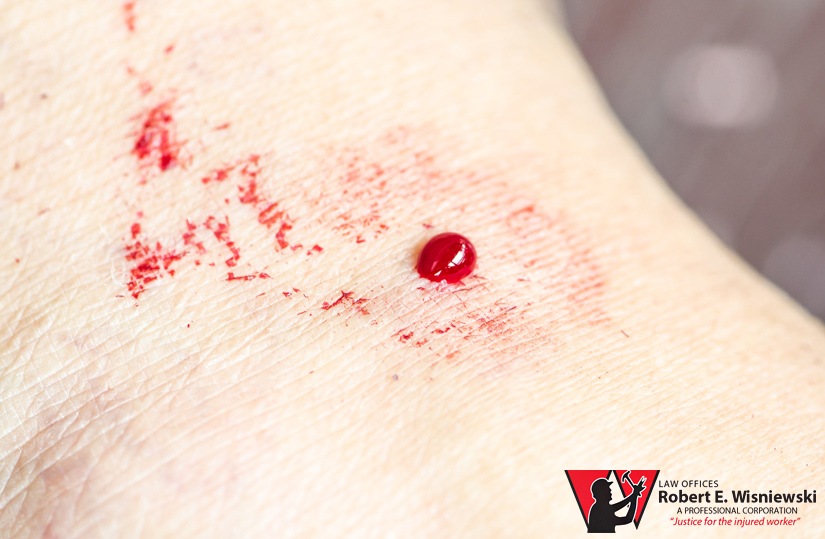The rules around workers’ compensation for significant bodily fluid exposure in AZ
Significant exposure to bodily fluids can cause the individual exposed to be infected by a disease. Common diseases that can be caught from bodily fluids include Hepatitis B and C, HIV and staph infections. Those in the medical community are the most vulnerable. If proper sanitary procedures didn’t take place, the hospital could be liable.
Significant exposure is defined by law differently in every state. All laws present are designed to protect workers from any financial loss or serious injury that was posed during the bodily fluid contact. Let’s learn how wrongful exposure to bodily fluids is handled in the state of Arizona and the role it plays in workers’ compensation claims.
What are “bodily fluids”?

Bodily fluids are defined by Arizona law as the following:
- Saliva
- Semen
- Vaginal secretions
- Pleural fluid
- Amniotic fluid
- Peritoneal fluid
- Synovial fluid
- Cerebrospinal fluid
- Pericardial fluid
- Anything else present in the blood
Significant exposure can occur when a person’s ruptured skin is exposed to these fluids. Exposure can be defined as a bodily fluid coming into contact with the ears, nose, eyes and mouth. Human bites can also be considered significant exposure to bodily fluids, as well as assault.
Employees have a right to take action even if the exposure to bodily fluids did not cause them to contract a disease.
Workplaces most at risk of significant bodily fluid exposure
Certain professions have a right to workers’ compensation for undue bodily fluid contact. This includes, but is not limited to, all who work in medical professions, forensic laboratory workers, firefighters and first responders. Some other professions may be able to press a suit as well if their job mandates that they must work with bodily fluids.
Individuals who have been exposed to significant bodily fluids caused by illegal drug use or sexual contact may not sue and will not get workers’ compensation.
What to do if you were exposed to bodily fluids at work
The window for reporting significant exposure is 10 days. You must provide your employer with proper documentation of exposure within this timeframe. The writing should be detailed with the time exposed and all surrounding circumstances. You can get information about what must be reported through the Industrial Commission of Arizona (ICA).
You must be tested for possible diseases that can come from bodily fluid no later than 18 months after significant exposure. Those who test positive only have 30 days to get tested for a second time. If you are retested and the results come back positive, you have 7 months to use that as grounds for workers’ compensation. Some diseases may take more than 30 days to create a positive result on a blood test.
A physician must be consulted to support your claim after testing has been done and the results have been concluded.
Can I sue a third party?
Employees in Arizona do not have the right to sue or get compensation from the individual who gave them the disease.
Employees working in the medical field and first responders are typically exposed to bodily fluids by individuals who they are in close contact with. The exposure may be an accident. With that said, employees who are working with psych patients may be exposed intentionally by the patient. These employees must get compensation from their employers.
Even if a case can be made, courts do not like to hold patients liable who were in a compromised state of mind. They may also see it as an occupational hazard that the worker should have been aware of, not negligence on the employer’s part.
Negative test results are not likely eligible for workers’ compensation
While an employee does have the right to file a compensation claim for negative results, these cases are generally unlikely to succeed. It is always wise for the employee to file within 10 days as a positive or negative result is not known yet. A judge may find that there is no impairment on that person’s ability to continue their job or pay costly medical bills if they have not contracted a disease.
Questions and answers about compensation for a job-related accident, injury or illness in Arizona
When to consult a workers’ compensation attorney
An attorney improves the employee’s chances of getting workers’ compensation. Everything will be done in proper order and you’ll have an expert on your side. An attorney can also help the employee understand whether their incident qualifies as significant work exposure to bodily fluids under the law.


